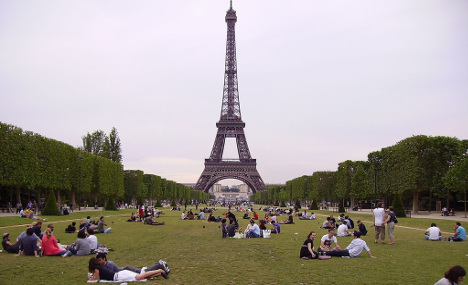Soon French picnickers won't be able to sup wine from plastic goblets or cut the Camembert cheese with plastic knives.
And parents will have to make sure they hand out paper cups and plates at their kids birthday parties.
The plastic ban law was hidden away in the “transition to green energy” bill that was passed in summer 2015.
However it won’t come into effect until 2020 so anyone who picnics regularly has plenty of time to adjust.
It’s not designed just to make life more complicated but to limit harm to the environment.
And the ban also applies to the cups distributed in water and coffee machines, so workers should make sure they have their own mug in future.
By 2020 producers of disposal plates, cups and cutlery must make sure they are made of biologically sourced materials and can be composted.

It’s just part of France’s ongoing war against all things plastic after supermarkets and stores were told they could no longer hand out plastic bags from July this year.
Why was it brought in?
It was initially proposed by France’s Greens group, the EELV party, in a bid to cut the energy used in making plastic as well the waste and pollution produced.
Well every year some 4.73 billion plastic cups are thrown away in France, with only a paltry one percent being recycled.
As well as the impact on the environment there are also concerns that the plastic cups when used to serve hot drinks can have a negative impact on health.
Questions have been asked over whether the heat of the beverage acts to release the toxins contained tin the cups, including endocrine disruptors, which can have negative side effects for the body.
Worried that the French ban could extend to other countries, Pack2Go Europe, a Brussels-based organization representing European packaging manufacturers, has vowed to fight Paris over the ban.
“We are urging the European Commission to do the right thing and to take legal action against France for infringing European law,” Pack2Go Europe secretary general Eamonn Bates told The Associated Press. “If they don't, we will.”
He argues that actually the ban may make matters worse by sending the message to consumers that they can simply leave their waste lying around because it is made from “bio-sourced plastics”.



 Please whitelist us to continue reading.
Please whitelist us to continue reading.
Member comments